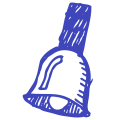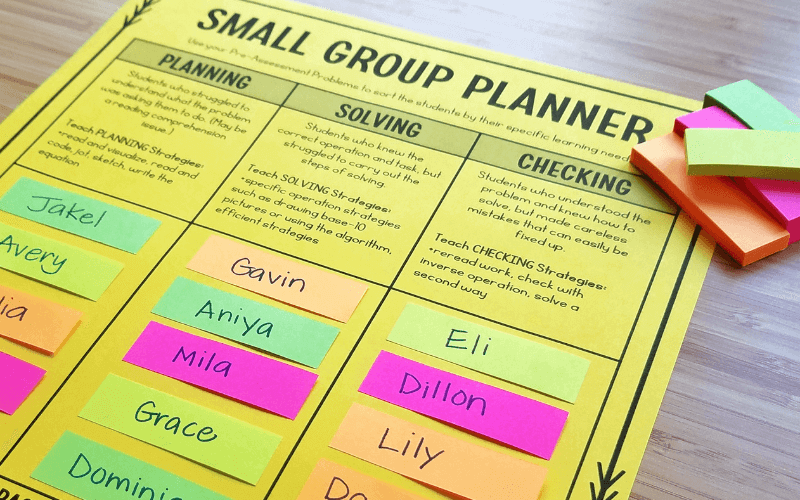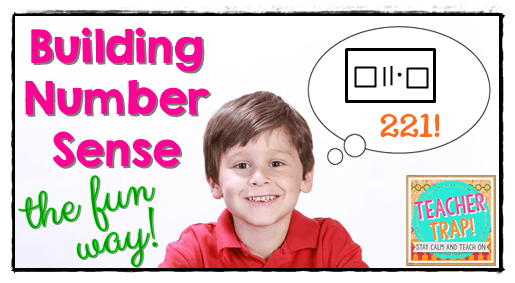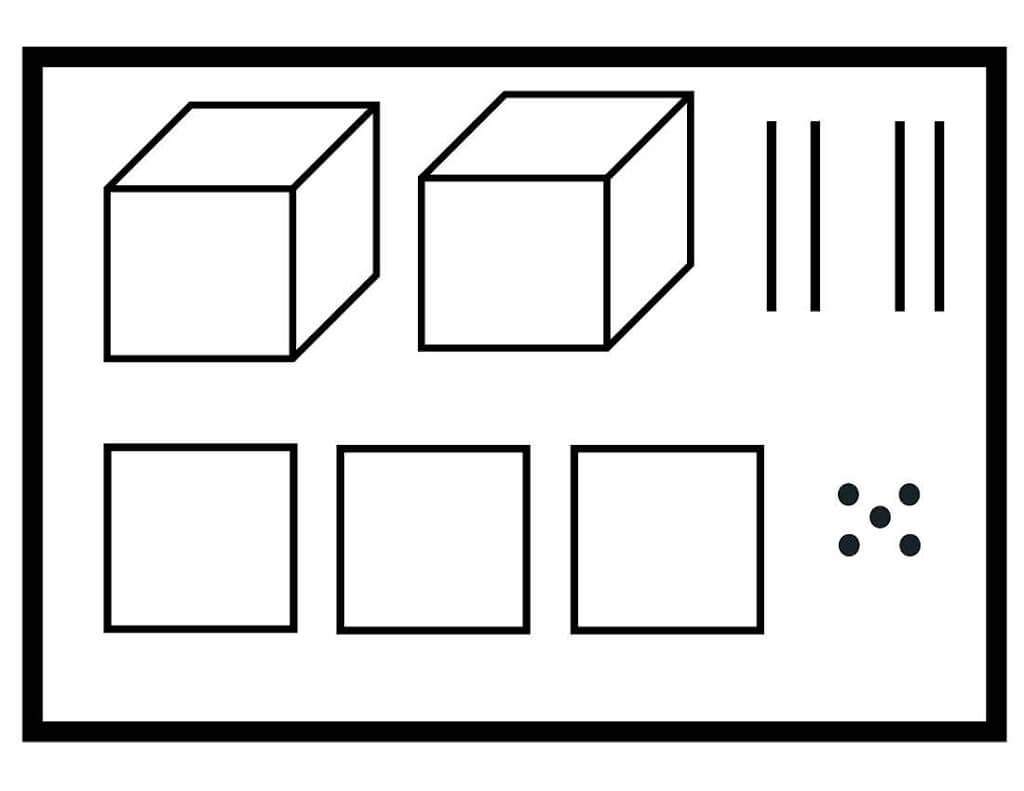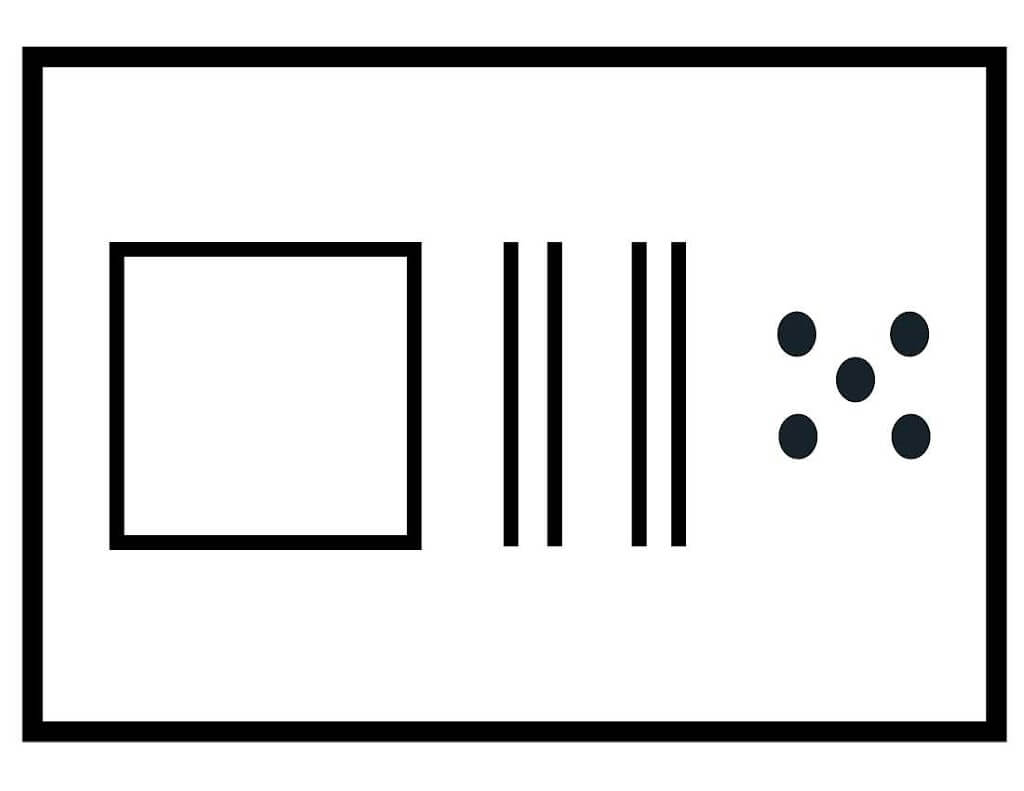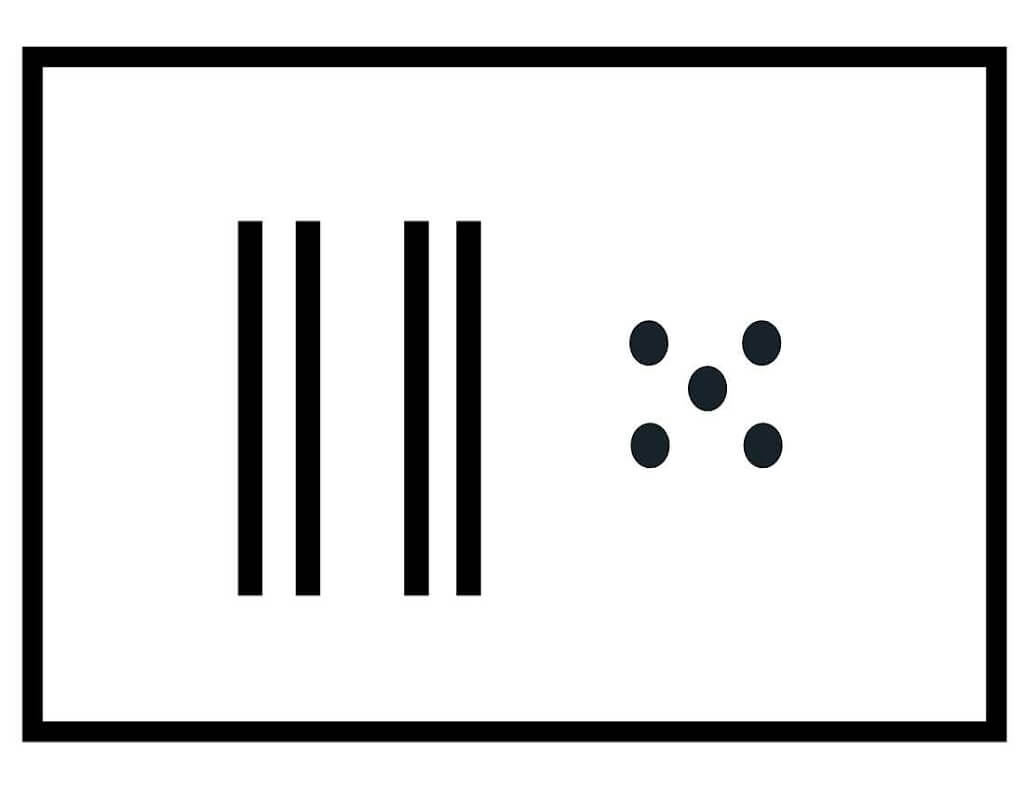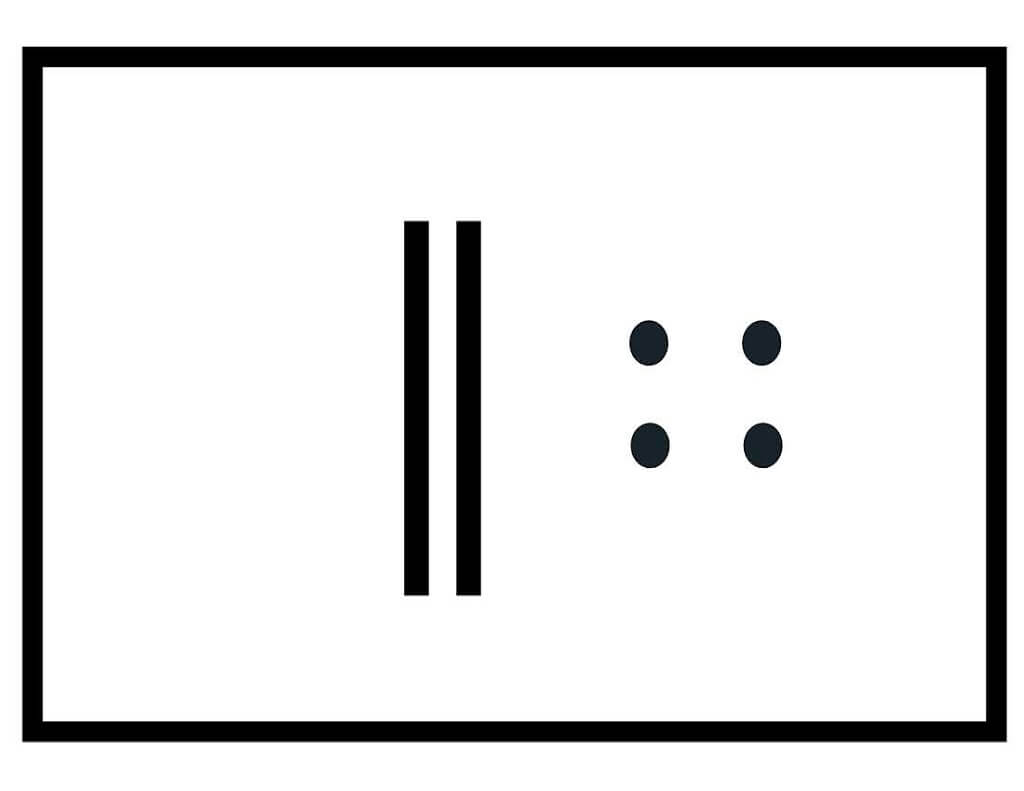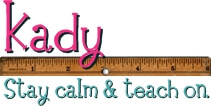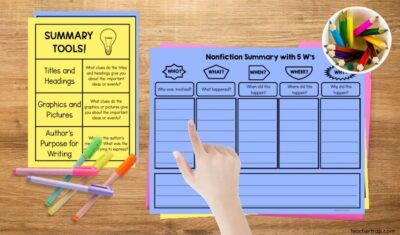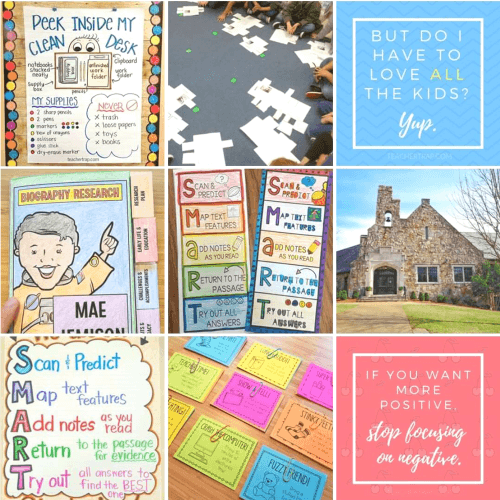Base 10 Flashcards are easy to make and easy to use. They are great for simple place value practice, for building mental math skills, and for helping kids develop number sense.
I like to make mine on half-size pieces of colored cardstock. (I prefer not to laminate because of the glare.) You can draw the symbols on the card or download my free cards on TPT (shown below.)
STEP 1: Teach the Symbols
Teach students the meaning of the symbols. I simply match my images to the place value blocks we all use, as pictured below. Depending on the grade-level, you might start with just tens (lines) and ones (dots).
STEP 2: One Card Slow Practice
Start with one card at a time. The kids catch on fast! Hold up one card for about 3 seconds and then hide it. The goal is for students to look at the image and quickly form groups within the image. For example, on the card below, most kids will immediately recognize the hundred (square) and will notice the 2 sets of 2 tens (40 total) and the grouping of 5 ones. Students shouldn’t have time to sit and count one by one. Students will then put together 100 + 40 + 5 in their mind to get the total: 145.
After students have had time to think, tell them to turn and share with a partner. (This is a great chance for the teacher to eavesdrop and see who is getting it!) Then call on one student to share their answer. Look at the card and discuss strategies.
STEP 3: Fast Flash!
Still using just one card at a time, go through a stack with the entire class increasing speed as students catch on. Eventually, you want the kids to see a collection of symbols and quickly call out the total. The kids love trying to beat their own time.
If you started with just tens and ones, then go back to step 1 and add on hundreds and/or thousands before moving on.
STEP 4: Addition (Two Cards)
To increase the challenge, show students two cards at the same time. Now students will have to add both groups of symbols together for the total. This activity is amazing for helping students take apart and put back together larger numbers. Kids will learn to easily pull out tens or hundreds for quick combinations.
For example, with the cards above, I would hope that students recognize the groups of 2 tens. Some kids might count 20, 40, 60. Others might count 2, 4, 6 and then know that 6 tens is the same as 60. Others might recognize 4 and 2 as 6 automatically. With the ones, some kids will see the 2 groups of 4 dots with the one extra on the left. Others will see 5 and 4. The kids will have all kinds of methods for combining the numbers and finding that the total is 69.
What you don’t want to see is kids calculating the total for each card and then adding. If students are seeing 45 and adding 24, they are less likely to develop those awesome decomposing skills we want! If this happens, play the game a little differently. Flash 2 cards and ask students to call out ONLY the total number of tens. Then play again and ask for only the total number of ones. This will build new habits of thinking and help your kids become more fluent and flexible with numbers.
STEP 5: Get Creative!
Once your students are familiar with these cards, you can play all kinds of games. I like to play a game where I hold up 2 cards and the kids point to the card that shows MORE (or LESS, depending on the game.) You can also use these cards for subtraction. Show a card and call out “10 less” or “30 less.” The possibilities are endless!
If you’d like to download the pre-made cards for FREE, just follow the link below to my TPT store.

